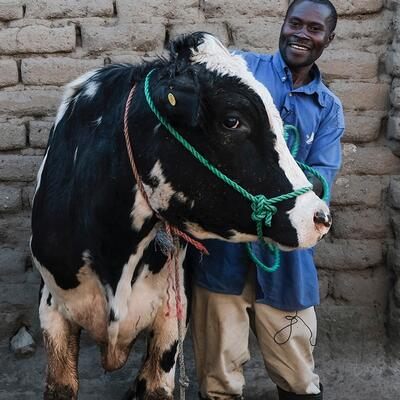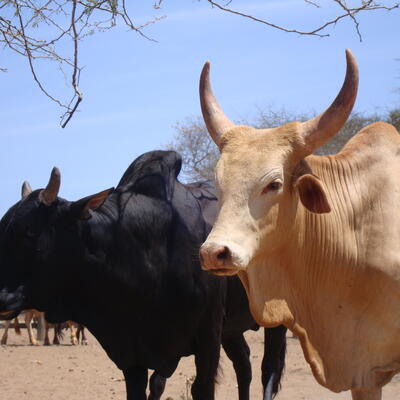
Strengthening capacity to tackle methane emissions from livestock in India
More than 40 Indian livestock experts who are working to reduce greenhouse gas (GHG) emission from the livestock sector benefited from a recent training workshop on assessing and reducing the impact methane emissions from cattle in the country.
Jointly organized by the International Livestock Research Institute (ILRI) and the Indian Council of Agricultural Research (ICAR), the ‘Livestock methane emission: assessment, impact, and amelioration strategies,’ virtual workshop was hosted at ICAR’s National Institute of Animal Nutrition and Physiology (NIANP), Bengaluru, 2-11 November 2020.
Participants included researchers from various ICAR institutes, state animal science universities, state veterinary colleges, ILRI and NIANP. The training included more than 20 lectures more than half of which were by international experts including Theun Vellinga of Wageningen University and Research, and Jan Dijkstra of Wageningen Livestock Research, the Netherlands; Robin C Anderson of the United States Department of Agriculture; Richard Kohn of the University of Maryland and Ermias Kebreab of the University of California. Chris McSweeney of the Commonwealth Scientific and Industrial Research Organisation; Yutaka Uyeno of Shinshu University, Japan; Metha Wanapat of Khon Kaen University, Thailand; Karen Beauchemin of Agri-Food, Canada and Polly Ericksen from ILRI also spoke at the nine-day training workshop.
Following welcome remarks by Habibar Rahman, ILRI regional representative for South Asia, Raghavendra Bhatta, director of ICAR-NIANP, Bengaluru, gave an overview on the impact of climate change on livestock production in India, different models of estimating livestock methane emissions and various approaches for ameliorating these emissions.
Key topics at the training workshop included:
- Methanogenesis and hydrogenotrophic in ruminant livestock
- Feeding approaches for reducing enteric methane emissions
- Techniques for quantifying enteric methane emissions from livestock
- Modelling of methane emissions in cattle
- Nitro compounds-based technologies combined with hyper-nitrite reducing bacterium for methane reduction
- Strategies for enteric methane amelioration from livestock
- Thermodynamic and kinetic control of rumen fermentation contributing to methanogenesis
- Application of R-Programming in biological sciences
A follow-up physical hands-on training is planned in February or March 2021 depending on the COVID-19 pandemic situation in the country.
 Participants joined the training virtually due to the COVID-19 pandemic (photo credit: ILRI).
Participants joined the training virtually due to the COVID-19 pandemic (photo credit: ILRI).
(The post was written by Kennady Vijayalakshmy, research and communications officer with ILRI in South Asia, with additional editing by Paul Karaimu, communications officer, ILRI).


















